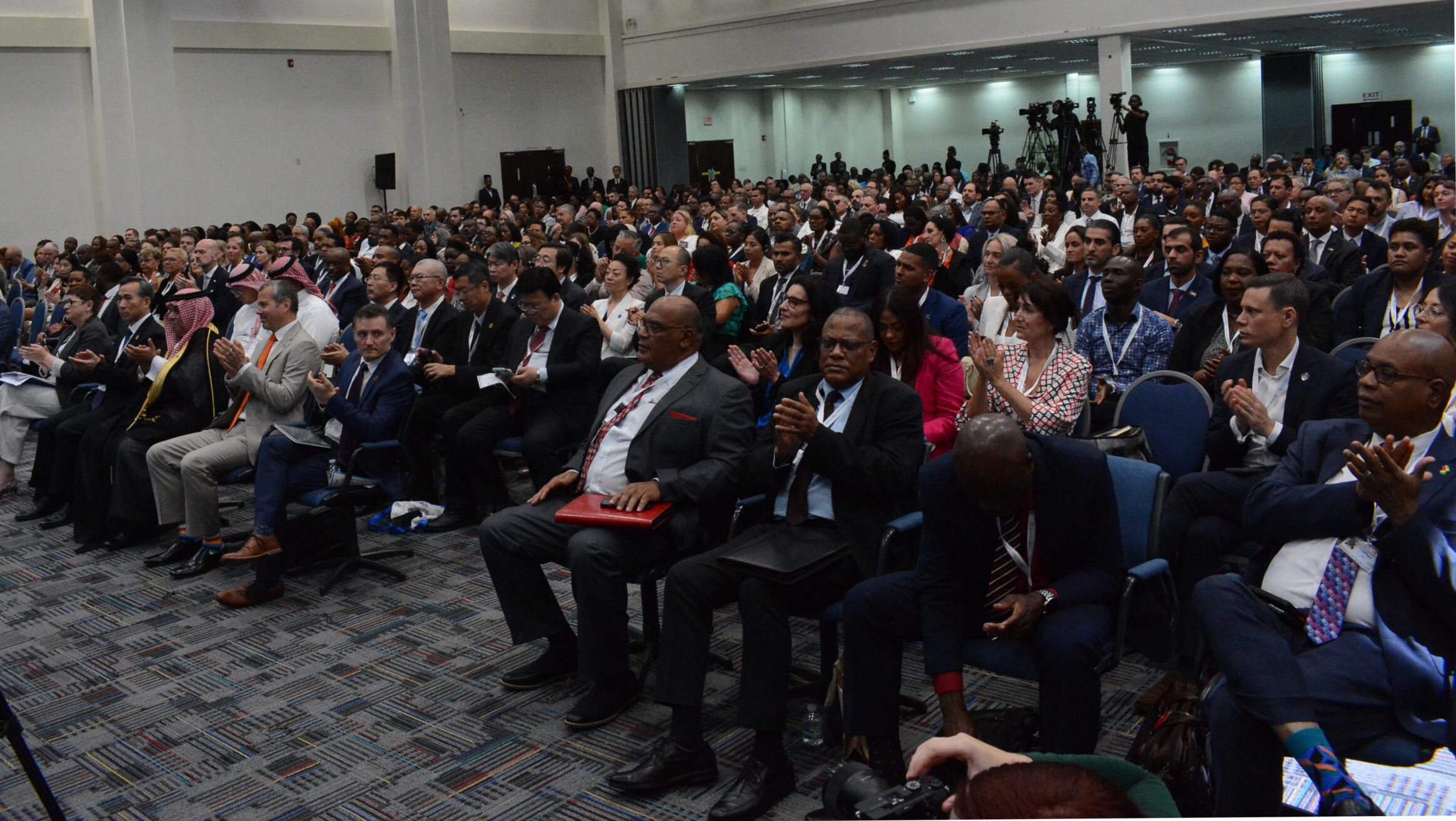Barbados Aims to Become Key Global Supply Chain Hub, Targeting Logistics Expansion and Resilience

May 22, 2024
Barbados aims to become a key player in the global supply chain by enhancing logistics infrastructure and port capacity, emphasizing resilience in the face of climate challenges.
Prime Minister Mia Mottley has announced Barbados’ ambition to position itself as a pivotal player in the global supply chain.
Mottley emphasised the importance of investing in and expanding the island’s logistics and port infrastructure to achieve this goal. “Barbados has traditionally been a hub. We were the hub for the wrong reasons for more than three centuries,” she said, alluding to the island’s historical context as part of the transatlantic slave trade.
In a speech at the inaugural Global Supply Chain Forum hosted by the United Nations Conference on Trade and Development (UNCTAD) on Tuesday, the prime minister asserted that Barbados now aims to become a “hub for the right reasons”, driven by the need for resilient supply chains in the face of increasing climate challenges.
Mottley highlighted the government’s policy to enhance logistics capacity and expand the Bridgetown Port over the next decade. “We have to have alternative opportunities,” she said, pointing to the frequent and severe impacts of hurricanes on the region.
Noting the current reliance on northern hubs such as Jamaica, the Bahamas and Miami, which are often in the direct path of hurricanes, Mottley said: “It is for that reason that those of us who live in the south of the Caribbean have a responsibility, if only to be able to ensure security and stability of supply from food and critical supplies, that we have the capacity within our port infrastructure to be able to be an alternative at a minute’s notice.”
The prime minister also stressed the importance of collaborating with regional partners such as Panama “to ensure that the region is not cut off from the multiple modes of production”.
UNCTAD Secretary-General Rebecca Grynspan echoed Mottley’s sentiments, reinforcing the importance of diversified suppliers and regional trade to enhance supply chain resilience. “This forum provides concrete tools and technical assistance in applying inclusiveness, sustainability, and resilience in supply chains,” she said.
Grynspan told the audience of delegates that achieving these goals requires substantial investment from the private sector, “resources that will allow deeper transition”.
UN Deputy Secretary-General Amina Mohammed, who also addressed the forum, highlighted the unique challenges faced by small island developing states (SIDS) and the critical need for a coordinated global response. “Their geographical isolation, dispersed populations, and reliance on external markets render them particularly vulnerable to supply chain disruptions.
“Although rising container shipping costs increase consumer prices worldwide, the impact on SIDS is five times greater than the global average.”
Mohammed called for a multilateral approach to addressing these challenges: “We must resist the temptation of pursuing isolationist policies… Instead, we must embrace multilateralism, recognizing that our fates are intertwined and that no nation can thrive in isolation.”
The forum, which Mottley described as being built on the principles of the Bridgetown Covenant, brought together nearly 1 000 guests from 127 countries, with representatives of 12 international agencies and ministers and CEOs from industries around the globe. Discussions are expected to continue over the coming days, with a continued emphasis on creating resilient and inclusive supply chains that benefit all nations, especially the most vulnerable. shannamoore@barbadostoday.bb


